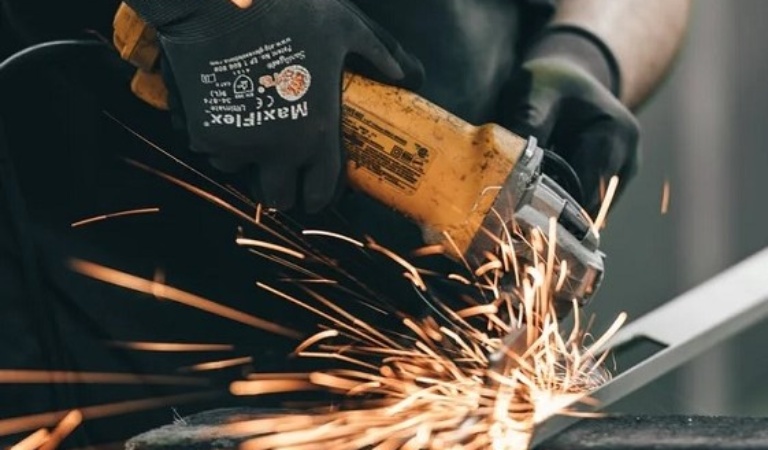 15th June 2022
15th June 2022Signs Your Water Storage Tank Needs Repairs
It’s no surprise that water storage tanks are susceptible to damages. Especially considering they hold tons of water. That’s a lot of water pressure.
If your tank is damaged, it will show signs. Whether it’s corrosion or cracks. The thing is, damaged water tanks are also more susceptible to water contamination, deeming the water unsafe.
Seeing any signs of damage on your water storage tank can be worrying, and you may wonder whether you need to get a replacement rather than just a repair. We’ll cover that for you in this blog.
Signs of Water Tank Damage
When some people think of water storage tanks, the first type you may picture are the large, industrial steel tanks used in the hospitality industry. And though they are definitely one type of water storage tank, they’re not the only type.
But it doesn’t matter what kind of water storage tank you have; they will all most likely show the same signs of damage.
Wear and Tear
The weight of the liquid being stored in water tanks puts pressure on the joints and walls of the structure. Over time, wear and tear occurs which can lead to corrosion. This causes contamination of the water. In addition to corrosion, wear and tear may also cause leaks to develop, leading to further contamination.
This means there’s contamination not just from the rust, but from the foreign materials and bacteria entering the tank through the point of the leak.
Corrosion
Corrosion is the deterioration of substances as a result of a reaction such as oxidation. It can affect a range of different materials and is not limited to just one.
For water tanks, the metal loses electrons to the oxygen that’s in the water. The water gaining oxygen results in a reaction and an oxide is formed – a water electron connecting to a metal electron, creating an ionic compound.
This reaction is one of the most damaging naturally occurring reactions that takes place. Large structures in our world can be seriously affected – buildings and bridges can become unstable, bathrooms can flood, and pipelines can break. Even medical implants can be affected. If they’re corroded, there’s the potential of blood poisoning which is seriously life-threatening.
Rust
A form of corrosion that will only affect iron and alloys of iron, such as steel. Like corrosion, it is caused by the oxidation of iron when the material is exposed to both air and moisture.
Piping
The high pressure from water can cause the piping to shift which causes leaks. This is a problem as it means that there is more pressure added onto your tank, as well as the stability being at risk.
Checking that the pipe is fitted correctly is the easiest way to avoid this occurring at all. Regular inspections allow you to maintain pipe condition.
Leaks
Just like how a cut is an open wound, a leak means that water can escape from the tank whilst foreign materials can get in.
Other Things To Know
Different types of tanks come with certain problems, either pertaining to the material or environment they’re located in. Steel tanks, for example, are incredibly durable but placed in an environment with salty air, the corrosion process speeds up. If these issues are thought-out beforehand, the appropriate solution can be made.
Back to the steel tank example, to prolong the life of the tank and give it extra protection, the tank may have a layer of coating added. Salty air environments are common near the coast, so it will be likely for sand or residue to build up on the inside of the tank. A simple rinse and refill will solve this.
Similarly, concrete tanks are also susceptible to corrosion when exposed to salt or acidic water.
Fire damage may cause a metal tank to warp or melt. In a case as extreme as this, you would need a tank replacement. Concrete tanks would be mostly unscathed from fire but the metal pipes may need replacing if they cannot be repaired.
When rusting or corrosion becomes egregious, it is ideal to get a complete replacement. Once corrosion gets to this point, it cannot really be repaired.
Clarion Water: Our Solutions
Tanks are more susceptible to corrosion when the original coating doesn’t have a protective metal substrate. Not only are tanks vulnerable to corrosion but also bacterial growth. Clarion Water has two main solutions to that.
A robust and reliable coating system which is effective long-term. Our team applies a lined system that is WRAS approved once the tank has been prepared. This lining results in a galvanised steel water tank. It is protected from future bacteria growth and corrosion.
And it’s guaranteed for 10 years!
Another solution is a tank replacement – we will supply and install a GRP water tank that is manufactured to British standards.
Get In Touch
Clarion Water has an experienced 30 years of knowledge in the water hygiene and Legionella industry.
We install, repair, reline and replace cold water tanks.
Contact our team with any queries or questions. Call us at 01943 872 311 or email info@clarionwater.co.uk. We’ll get back to you as soon as possible!